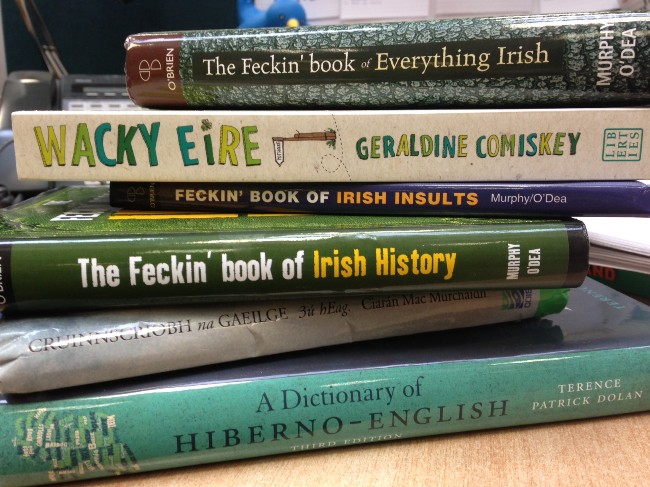MOST POPULAR STORIESˇ
'Small useless potato' – 16 of the weirdest descriptions from the Irish-English dictionary
Posted 19 hours ago
Beyoncé announces two Dublin dates for 2013: watch her Superbowl performance here
Posted 23 hours ago
Noos a Daalyon! 6 languages from Ireland that you may not have heard of


English and Irish may be the official languages of Ireland – but did you know that there are six other languages that have appeared in Irish history?
From the Traveller tongue and our own unique signs to languages borrowed from our neighbours, here are six languages of Ireland that you may not have heard of.
1. Shelta or Cant
Shelta also known as Cant/Gammen/Pavee is a language that the Irish Travelling community use to communicate with each other. According to Ethnologue, there are 6000 native speakers in Ireland with an estimated 86000 worldwide Irish Travellers.
Here are five words Shelta and their meanings in English:
- Sky means 'water'
- Feen means 'man'
- Sinawal means 'beer'
- Shaykar means 'sister'
- Thoaber means 'road'
Have a listen to this clip by the Irish Traveller Movement in Britain on this interesting language:
2. Irish Sign Language
Though not a spoken language, Ireland's version of sign language is an important one. Interestingly enough though communicating through English, Ireland's sign language is completely different to that of the United Kingdom or America.
It has little relation to either spoken Irish or English, and is more closely related to the French Sign Language than to the British Sign Language. In Northern Ireland, their sign language is related to both Irish and British sign language in different ways.
3. Ulster Scots
Ulster Scots also known as Ullans is seen as a variation of Scots spoken in some parts of Co Donegal and Northern Ireland. It is promoted by the Ulster Scots Agency. However, there is an ongoing debate as to whether Ulster Scots is in fact a separate language or just a dialect of Scots.
Here are five words in Ulster Scots with their meanings in English:
- Cowp means to 'tip over' or 'unbalance'
- Thon means 'that'
- Cannae means 'can't'
- Gye means 'very'
- Danner means 'walk'
Have a listen to this clip of Willie Drennan discussing the Ulster Scots tongue:
4. Yola
Here are five words in Yola with their meaning in English:
- Caule means 'horse'
- Unket means 'shy'
- Trameal means 'lazy person'
- Rusheen means 'snack'
- Klouk means 'awkward woman'
Have a listen to this lyrical language below:
5. Fingalian
Fingalian or Fingallian was an Anglic language or dialect formerly spoken in Fingal in Dublin. Similar to Yola it was also spoken in Ireland up until the end of the 19th century.
Here is a sample poem from John Dunton's Letters from Ireland (1698) of Fingalian. It is a lamentations by a mother over the grave of her son:
Ribbeen a roonRibbeen moorneengThoo ware good for loand stroand and mounteenFor rig a tool and roast a whiteenReddy tha taakleGather tha baarnacksDrink a grote at Nauny Hapennys
6. Norse
Another extinct language, the Norse-Gaels originated in Viking colonies of Ireland and Scotland. The occupiers quickly became subject to the process of Gaelicisation meaning that they intermarried and adopted the Irish language and other customs.
According to broadcaster Scott De Buitléir, who is also a keen enthusiast of Scandinavian languages, 'the Norse used here was best preserved in the Faroes, as there were many Gaels who lived there. Faroes and Iceland were influenced by their Gaeilge - our dialect of Norse would have been somewhat similar.'
The clip below features 'old Norse', which would have been similar to the language in Ireland:



Comments
show moreNo comments yet. Be the first to leave a comment below...